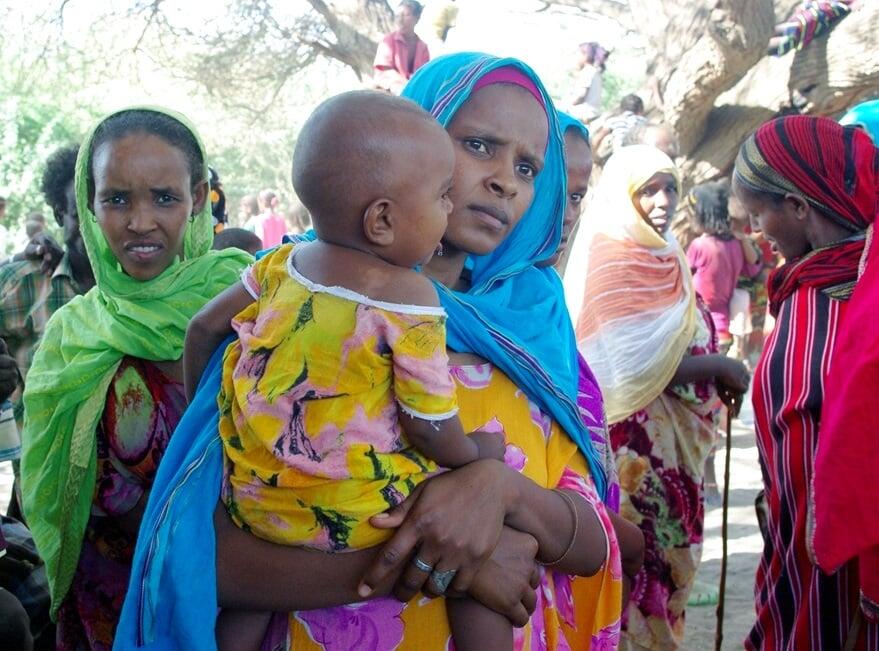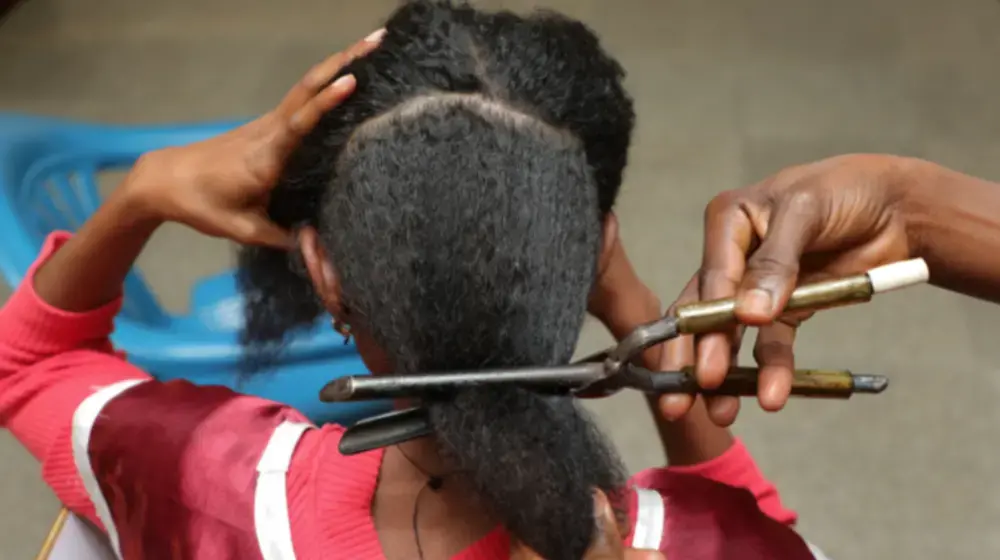LOGIA, Afar Region, Ethiopia – “Things are changing little by little and Afar women are getting services,” says Sister Aminat Yimam. This is a profound statement, for in the pastoralist community of Afar Region where the issue of family planning remains largely taboo, the change represents significant progress.
Women who have tried in the past to access family planning services in the region have faced threats ranging from not receiving blessings from religious leaders, to being told that no one would bury them when they died, to being ostracized in their communities. Not surprisingly, many women who received contraceptive implants at health institutions subsequently had them removed.
So it is an understatement to say that her task of changing attitudes and health-seeking behaviour was challenging, says Sr. Aminat, a frontline health professional who provides family planning services and information at a UNPFA-supported clinic. Apart from those who have migrated here for business or labour purposes, one hundred per cent of the population is Muslim. The challenge is compounded by the harsh environment, poor infrastructure and a shortage of skilled manpower.
The region’s contraceptive prevalence rate stands at 6.5 per cent, the second lowest in the country, with a national average of 29 per cent.
Sr. Aminat works as a clinical nurse at the Sexual and Reproductive Health (SRH) Clinic, which targets women from the underserved Afar community with access to family planning and other reproductive health services, like safe abortion.

Sr. Aminat discusses family planning with a client. © UNFPA / Abraham Gelaw
The clinic, run by the Family Guidance Association of Ethiopia (affiliated to the International Planned Parenthood Federation, IPPF), is based at the Logia Health Centre and has been operational since August 2012. The clinic targets three districts, one town administration and a university.
Poor maternal health in Afar
The Afar region has poor maternal health indicators even by national standards which, as the Ethiopian Demographic and Health Survey of 2011 shows, remain low. Health-seeking behaviour is also poor. The region’s contraceptive prevalence rate stands at 6.5 per cent, the second lowest in the country, with a national average of 29 per cent.
The total fertility for the area is estimated at 5 children per woman, against a national average of 4.8 children per woman. On top of this, the region has the highest unskilled birth attendance in the country, at 93 per cent. The cumulative effects of these poor indicators, coupled with deep-rooted harmful traditional practices like female genital mutilation (FGM), have led to unacceptably high maternal morbidity and mortality. This is reflected in Afar’s relatively low female population – 44 per cent, compared to the national average of 51 per cent.
Factors contributing to low family planning coverage in the region include the low status of women when it comes to decision making, various misconceptions regarding family planning, and compounding cultural and religious beliefs.
Promoting family planning and contraceptives
In recent years, advocacy efforts have targeted political leaders, community elders and religious leaders to build a conducive environment for creating access to family planning for underserved women in Afar. In view of the sensitivity of family planning, especially contraceptives, the focus has been on improving maternal health and contributing to the reduction of maternal morbidity and mortality.
Partnering with health extension workers
The SRH Clinic also does outreach work in partnership with health extension workers (community health workers), who help create demand for family planning with the blessing of community leaders. To date, 40 health extension workers have been trained to support this outreach work.
Men who were told that their wives would face serious health consequences if they agreed to the use of family planning are now ready to do so. - Sr. Aminat
Due to their involvement, as well as community initiatives like the Afar interpersonal traditional communication system, the Dagu, which enables communities to exchange information over long distances in a short period of time, people are now travelling long distances to seek services at the clinic. Men who were told that their wives would face serious health consequences if they agreed to the use of family planning are now ready to do so, Sr. Aminat says.
Women attend with their husbands to receive family planning services, while many also do so alone. Although it still represents a huge challenge, this could serve as an entry point to ensure male involvement in sexual and reproductive health. Sr. Aminat now sees an average of six to seven women a day, most of whom opt for short-term methods of family planning. This number may appear small in absolute terms but in a region such as Afar, it is very encouraging. And records show the trend is increasing.
For the Afar community, which is predominantly pastoralist, longer-term methods of family planning are ideal. The women tend to have many children, and their highly mobile lifestyle makes follow-ups on short-term methods very difficult.
Intgrating family planning with HIV/STI prevention
Women who seek other health services at the Logia Health Centre are referred to the clinic for family planning services integrated with HIV/STI prevention and other maternal health services. This integration of services helps create demand for services. But the outreach work needs to be strengthened further to increase demand, Sr. Aminat says.
In view of a staff shortage, the clinic relies unduly on the health extension workers, who have capacity problems. Sr. Aminat recommends boosting the clinic’s human resource capacity for regular outreach work follow-up with the community health workers. The coordinator of the SRH clinic, Tefera Haile, agrees. There is a need to train women health extension workers (presently many of the community health workers are men) for the effort to be more effective with potential women clients. To date, the focus has been on the provision of services and more needs to be done on awareness creation – especially on male involvement.
Despite the challenges relating to family planning, what is important is that the ball has started rolling. The Afar Region has already recorded major successes in the campaign to abandon female genital mutilation (FGM). For instance, the six districts where the UNFPA-UNICEF Joint Programme on the Accelerated Abandonment of FGM is being implemented have publicly declared their abandonment of the practice. There is no reason why these successes should not be replicated with family planning.
With the commitment of Sr. Aminat and others like her working to improve the sexual and reproductive health of the people of Afar – specifically to reduce maternal deaths – half of the journey is already complete.
By Abraham Gelaw





